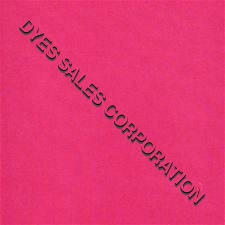Direct Yellow 44 Dyes
Price 400 INR/ Kilograms
Direct Yellow 44 Dyes Specification
- Solvent Color
- Bright yellow
- Water Resistance
- Excellent
- Purity
- 98%
- Poisonous
- NO
- Melting Point
- Decomposes
- Resistance
- Good light and washing fastness
- Shelf Life
- 2 years
- Size
- Standard
- Grade
- Industrial Grade
- Solubility
- Soluble in water
- Taste
- Odorless
- Other Names
- Chrysophenine G, C.I. 29000, Direct Yellow GLL
- Strength
- 200% / 100% (as per requirement)
- Smell
- Odorless
- Density
- Gram per cubic centimeter(g/cm3)
- Shape
- Powdered
- Application
- Paper, Leather, Textile Dyestuffs
- HS Code
- 3204.120090
- Moisture (%)
- Moisture 5%
- Rubbing Resistance
- Good
- Type
- Direct Dye
- Usage
- Textile Dyestuffs
- Physical Form
- Powder
- Compatibility
- Compatible with salts and alkalis
- Packing
- 25 kg HDPE drum/bag
- Minimum Order Quantity
- 500 kg (negotiable)
- Substrate Suitability
- Cellulosic fibers (Cotton, Viscose)
- Fastness to Acid
- Moderate
- Appearance
- Yellow powder
- Ionic Character
- Anionic
- Insoluble Matter (%)
- 0.3%
- Storage Conditions
- Store in cool, dry place
- Tinting Strength
- High
- Dyeing Method
- Exhaust or padding
Direct Yellow 44 Dyes Trade Information
- Minimum Order Quantity
- 25 Kilograms
- Supply Ability
- 1000 Kilograms Per Day
- Delivery Time
- 2-5 Days
About Direct Yellow 44 Dyes
With our prime focus on quality, we are involved in manufacturing, supplying and exporting Direct Yellow 44 Dyes. These dyes are manufactured at our state-of-art infrastructure using premium materials with the aid of high end machines and modern technology. Our offered product is suitable for textile industry in coloring wool, yarns, cloth and threads. This range of Direct Yellow 44 Dyes is widely recommended by our variegated customers for being:
- Highly solvent
- Organic in nature
- Easy to apply
- Lustrous
| Direct Dyes | C. I. Name |
| Yellow 5 GLL | Direct Yellow 44 |
| Brilliant Yellow 3 GX | Direct Yellow 6 |
| Paper Yellow T | Direct Yellow 11 |
| Chrysophenine GCH H/C [Heavy] | Direct Yellow 12 |
| Sun Yellow RCH | Direct Yellow 99 |
| Fast Scarlet 4BS | Direct Red 23 |
| Red 12B | Direct Red 31 |
| Helio B | Direct Violet 51 |
| Sky Blue FF | Direct Blue 15 |
| Brill Blue BL 200% | Direct Blue 106 |
| T. Blue SBL | Direct Blue 86 |
| Blue GRL | Direct Blue 200 |
| Grey RLN | Direct Black 56 |
| Black AR | Direct Black168 |
| Black OB | Direct Black 80 |
| Black B 7 | Direct Black 155 |
| Yellow CFG H/C | Direct Yellow 8 |
| Orange 102 | Direct Orange 102 |
| Bordeaux 6B (EXP.STD.) | Direct Red 16 |
| Blue RLL | Direct Blue 80 |
| Turq. Blue | Direct Blue 199 |
| Green NB | Direct Green 114 |
High-Performance Yellow Dye for Multiple Applications
Direct Yellow 44 stands out for its strong tinting strength and excellent resistance properties, making it ideal for diverse industrial uses. Whether employed in textile dyeing, leather coloring, or paper tinting, its fastness to washing, water, and light ensures long-lasting, vibrant results. The anionic nature of the dye offers seamless compatibility with various salts and alkalis, and its high solubility in water ensures ease of formulation for manufacturers, suppliers, and exporters.
Optimized for Cellulosic Fibers and Industrial Processes
Specially tailored for cotton and viscose, Direct Yellow 44 can be easily integrated into exhaust or padding dyeing methods. The powders fine, bright yellow composition allows for even and consistent application, while its moderate acid fastness and superior rubbing resistance add extra value to finish products. Its 98% purity and moisture content below 5% guarantee minimum wastage and excellent production yields.
FAQs of Direct Yellow 44 Dyes:
Q: How should Direct Yellow 44 be stored for optimal shelf life?
A: Direct Yellow 44 should be stored in a cool, dry place in its original HDPE packaging. Proper storage ensures the dye retains its effectiveness and stability for up to two years.Q: What is the recommended application process for Direct Yellow 44 on textiles?
A: Direct Yellow 44 is best applied to cellulosic fibers, such as cotton and viscose, using exhaust or padding dyeing methods. Its high tinting strength and compatibility with salts and alkalis allow for efficient and vibrant dye uptake.Q: When is Direct Yellow 44 most beneficial to use in industrial settings?
A: This dye is most beneficial when high color strength, good fastness to washing and light, and excellent water resistance are required. It is an optimal choice for textile dyestuff, leather, and paper manufacturers aiming for consistent, vivid yellow shades.Q: Where can Direct Yellow 44 be applied aside from textiles?
A: In addition to cellulosic textiles, Direct Yellow 44 is widely used in the coloring of paper and leather, where its bright yellow hue and good resistance properties are advantageous for various finished products.Q: What are the advantages of using Direct Yellow 44 in manufacturing?
A: Direct Yellow 44 offers several advantages, including high tinting strength, excellent water and rubbing resistance, industrial-grade purity, and a non-toxic, odorless profile. These benefits contribute to easily managed, high-quality output.Q: Is Direct Yellow 44 compatible with all types of processing chemicals?
A: Direct Yellow 44 is compatible with salts and alkalis, which are commonly used in dyeing processes. However, it has only moderate resistance to acids, so exposure to strong acids during processing should be minimized.

Price:
- 50
- 100
- 200
- 250
- 500
- 1000+
More Products in Direct Dyes Category
Direct Dyes - DIRECT RED 227
Price 400 INR / Kilograms
Minimum Order Quantity : 25 Kilograms
Moisture (%) : 1.0%
Rubbing Resistance : other, Moderate
Usage : Textile Dyestuffs
HS Code : 32041420
Direct Dyes - DIRECT RED 254
Price 400 INR / Kilograms
Minimum Order Quantity : 25 Kilograms
Moisture (%) : <1%
Rubbing Resistance : other, Fair
Usage : Other, Textile Dyeing
HS Code : 3204
Direct Dyes - SUN YELLOW RCH
Price 400 INR / Kilograms
Minimum Order Quantity : 25 Kilograms
Moisture (%) : Max 1.0
Rubbing Resistance : other, Good
Usage : Textile Dyestuffs
HS Code : 3204.1200
DIRECT YELLOW 99
Price 400 INR / Kilograms
Minimum Order Quantity : 25 Kilograms
Moisture (%) : Max 1%
Rubbing Resistance : other, Good
Usage : Textile Dyestuffs
HS Code : 32041400

 Send Inquiry
Send Inquiry






 Send Inquiry
Send Inquiry Send SMS
Send SMS